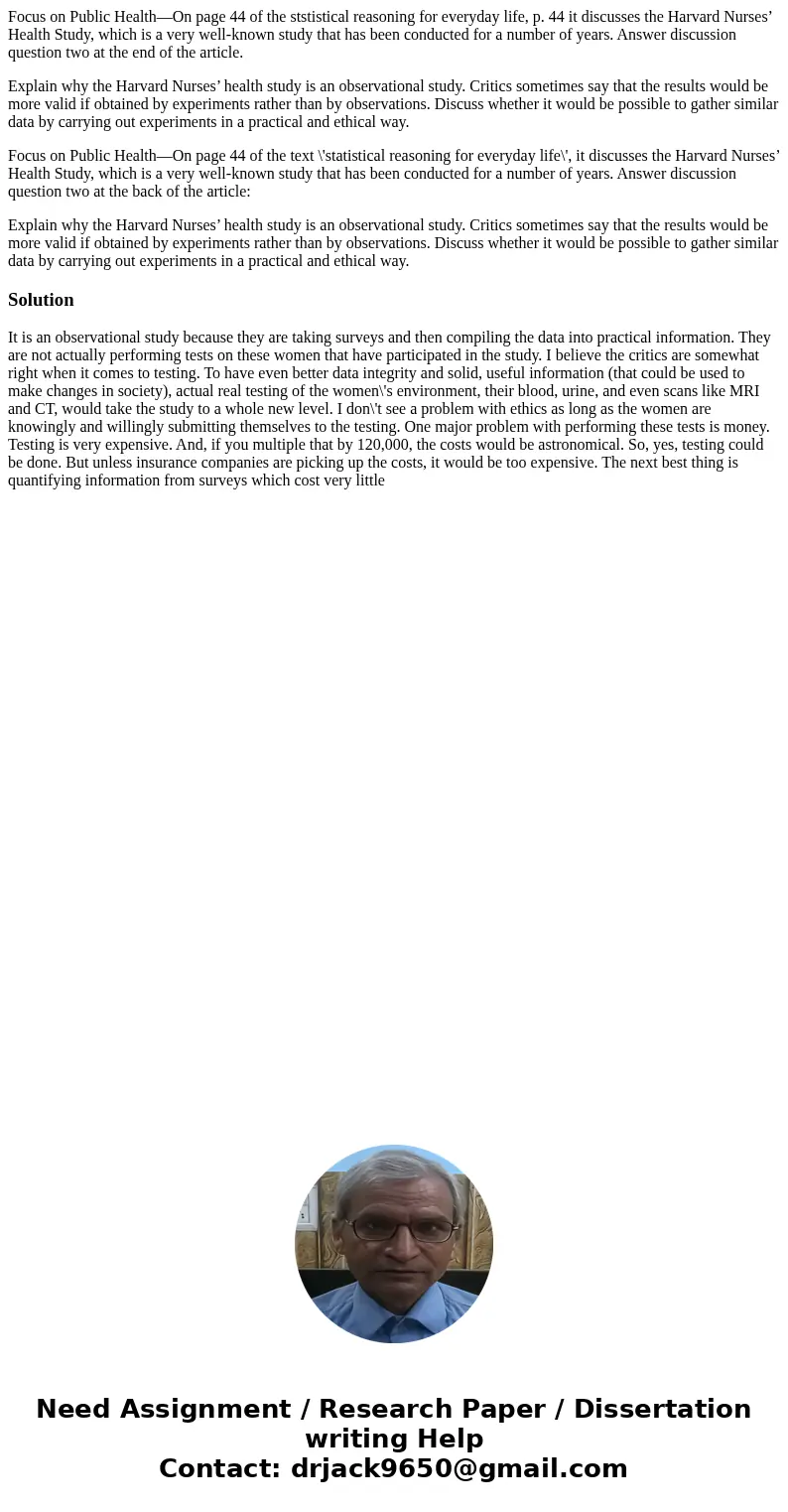Focus on Public HealthOn page 44 of the ststistical reasonin
Focus on Public Health—On page 44 of the ststistical reasoning for everyday life, p. 44 it discusses the Harvard Nurses’ Health Study, which is a very well-known study that has been conducted for a number of years. Answer discussion question two at the end of the article.
Explain why the Harvard Nurses’ health study is an observational study. Critics sometimes say that the results would be more valid if obtained by experiments rather than by observations. Discuss whether it would be possible to gather similar data by carrying out experiments in a practical and ethical way.
Focus on Public Health—On page 44 of the text \'statistical reasoning for everyday life\', it discusses the Harvard Nurses’ Health Study, which is a very well-known study that has been conducted for a number of years. Answer discussion question two at the back of the article:
Explain why the Harvard Nurses’ health study is an observational study. Critics sometimes say that the results would be more valid if obtained by experiments rather than by observations. Discuss whether it would be possible to gather similar data by carrying out experiments in a practical and ethical way.
Solution
It is an observational study because they are taking surveys and then compiling the data into practical information. They are not actually performing tests on these women that have participated in the study. I believe the critics are somewhat right when it comes to testing. To have even better data integrity and solid, useful information (that could be used to make changes in society), actual real testing of the women\'s environment, their blood, urine, and even scans like MRI and CT, would take the study to a whole new level. I don\'t see a problem with ethics as long as the women are knowingly and willingly submitting themselves to the testing. One major problem with performing these tests is money. Testing is very expensive. And, if you multiple that by 120,000, the costs would be astronomical. So, yes, testing could be done. But unless insurance companies are picking up the costs, it would be too expensive. The next best thing is quantifying information from surveys which cost very little

 Homework Sourse
Homework Sourse